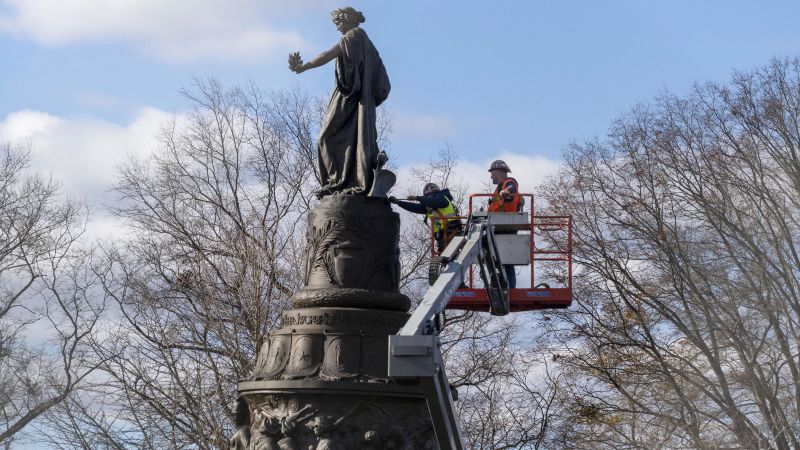- cross-posted to:
- usnews@beehaw.org
- cross-posted to:
- usnews@beehaw.org
The removal of the Confederate Memorial at Arlington National Cemetery in Virginia may proceed, a federal judge ruled Tuesday, after finding groups who tried to halt it failed to prove that keeping the monument was in the public’s best interest.
US District Judge Ronnie D. Alston granted a temporary restraining order Monday, barring the memorial’s removal after a request for a preliminary injunction by the groups Defend Arlington and Save Southern Heritage Florida.
The groups claimed the Defense Department’s plan to remove the memorial violated the National Environmental Policy Act, and that the department had failed to take care of the grave sites surrounding the memorial site during the removal process.
But in an order filed Tuesday, Alston said the plaintiffs did “not establish that a preliminary injunction is in the public interest.”
“Plaintiffs’ complaints regarding the removal efforts being likely to damage the gravesites are misinformed or misleading,” the order said.



Or oppressors or losers. Germany has no issues remembering the Nazis despite the lack of Nazi memorials. They do have a ton of memorials to the victims though. That is something this nation needs more of. In Berlin, you can’t go more than a few blocks without walking over a stumbling block which details the name, birth, and death of someone sent to a death camp. We should have that here. Every slave we know of should have a block in front of the plantation they were enslaved at.
About 16 years ago, a friend of mine was getting married. I attended his wedding at a former plantation in South Carolina. (Nowadays, I’d question this decision, but it didn’t occur to me at the time.) While there, I decided to take a tour of the grounds. After all, it was beautiful there and I wanted to learn about the history of the place.
That’s when I realized how much they tried to sweep slavery under the rug. They referred to the slaves as “workers” and never used any term that would lead one to believe that they were “employed” against their will. If you didn’t know US history and took that tour, you’d have pictured a group of men getting hired, working an 8 hour day, and collecting a paycheck. This was certainly not what had happened there.
I sometimes wonder if they’ve updated their tour. Would they today actually acknowledge what took place there or do they still talk about the “workers.”
Instead, this is where we are… https://www.texasmonthly.com/news-politics/texas-historical-commission-book-removal/